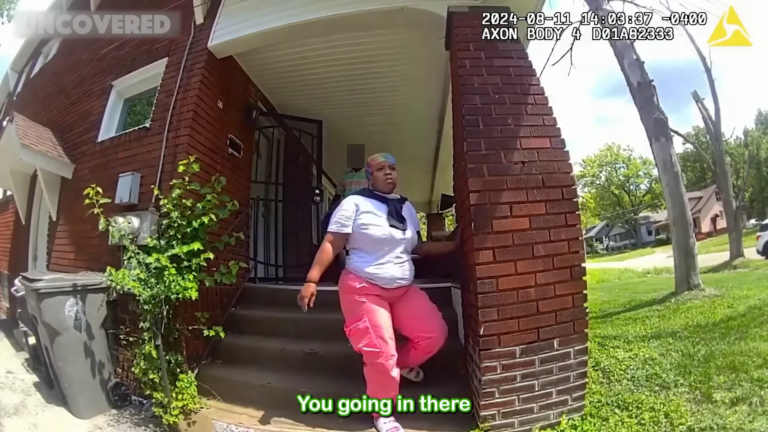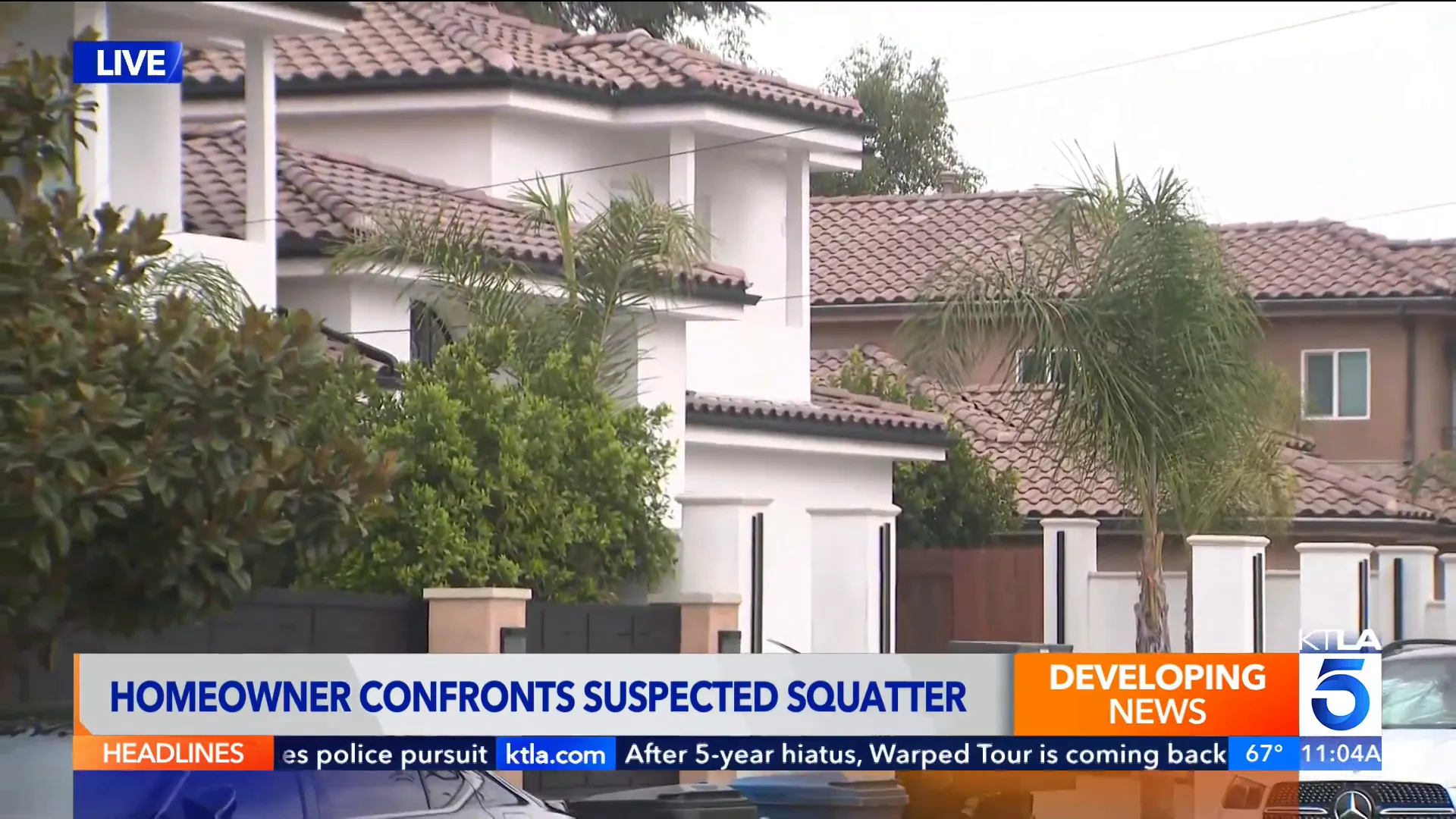
In a chilling incident in Valley Glen, a homeowner faced off against a suspected squatter occupying his property. This encounter sheds light on the growing issue of squatting and the emotional toll it takes on homeowners.
Table of Contents
- Table of Contents
- Legal Ramifications of Squatting
- Personal Accounts from Other Homeowners
- Preventative Measures for Homeowners
- Conclusion: The Need for Vigilance
- Frequently Asked Questions
Table of Contents
- Introduction to the Incident
- The Homeowner’s Discovery
- The Confrontation
- Aftermath of the Struggle
- The Suspected Squatter’s Background
- Community Impact and Concerns
Introduction to the Incident
This incident is a stark reminder of the vulnerabilities homeowners face in today’s society. The struggle for one’s home can manifest in unexpected and dangerous encounters, particularly in areas where squatting has become prevalent. Mike Metro, the homeowner involved, found himself in a terrifying situation that no one expects when they invest in property.
Valley Glen, once a tranquil neighborhood, has seen a rise in squatting incidents, creating tension among residents. Homeowners like Metro are increasingly concerned about the safety of their properties. This incident highlights the urgent need for effective measures to protect homeowners and restore peace in their communities.
The Homeowner’s Discovery
Late at night, Metro noticed an unusual light illuminating the second floor of his property, which had been empty for some time. This single detail sparked immediate concern. Why was there light in an unoccupied unit?
Upon investigating, Metro discovered the door ajar. As he approached, he felt a mix of anxiety and determination. He had to ensure that his home was secure, but what he found inside was shocking.

The Confrontation
What followed was a confrontation that would escalate quickly. Metro encountered the intruder face-to-face, leading to a struggle for control. He described the situation as chaotic, with the squatter attempting to resist and fight back.
In the heat of the moment, Metro’s instincts took over. He fought to protect himself and his home, a primal reaction in the face of danger. This altercation was not just a fight for property; it was a fight for safety and peace of mind.

Aftermath of the Struggle
Once police arrived, the situation began to stabilize. The intruder, identified as Tony Randall, sustained injuries during the confrontation and was subsequently treated by emergency personnel. The chaos left behind was a stark reminder of the vulnerabilities homeowners face.
Metro was left to process the emotional toll of the encounter. It wasn’t just about physical safety; the psychological impact lingered long after the police took the suspect away. The feeling of violation and fear can haunt anyone who has faced such an ordeal.
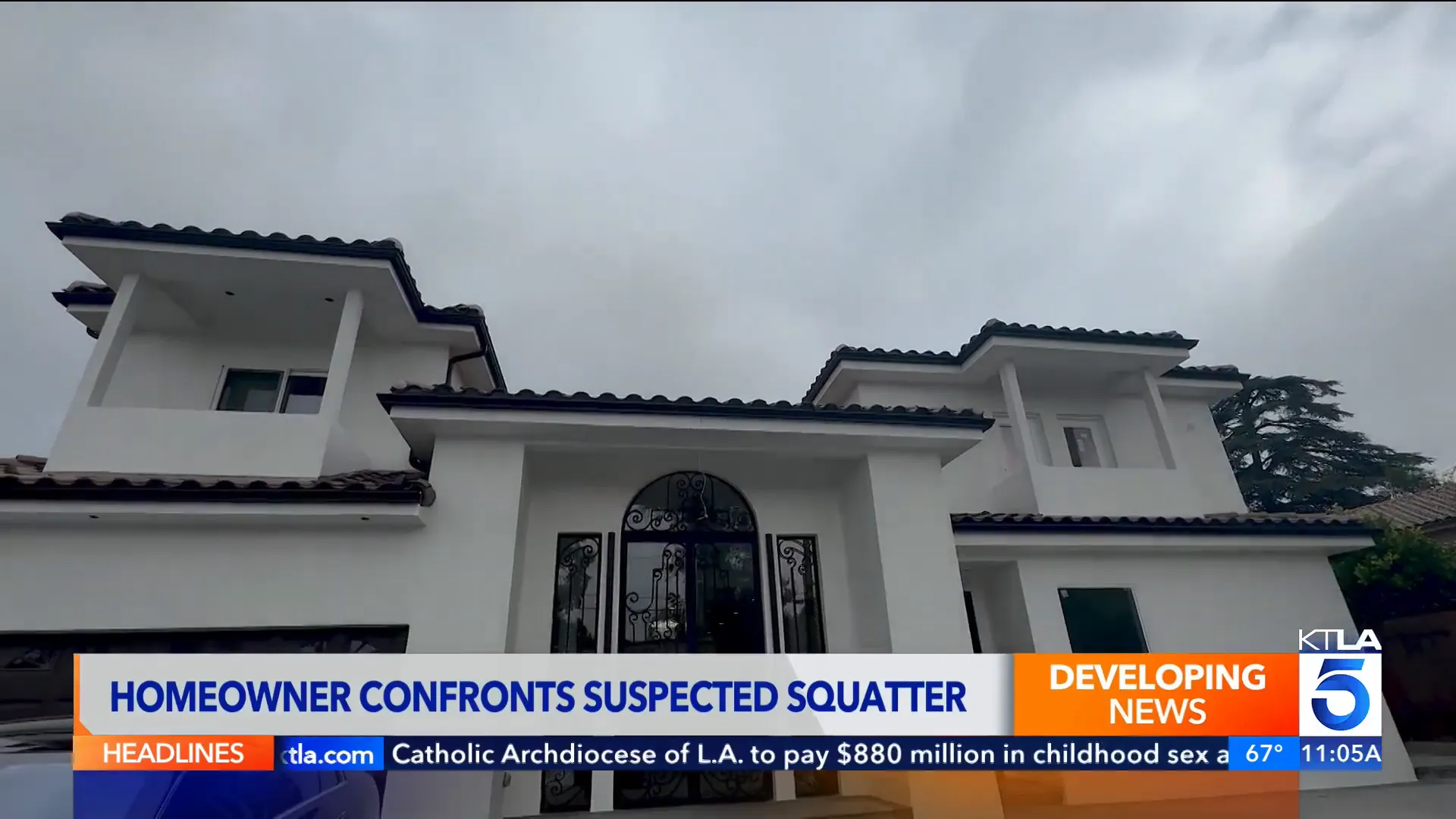
The Suspected Squatter’s Background
Tony Randall, the man at the center of this incident, has a history that raises numerous questions. At 35 years old, his background reveals a pattern of behavior that may have contributed to his actions. Previous encounters with law enforcement suggest a troubled past, possibly exacerbated by substance abuse issues.
Residents in the area had seen Randall before, raising alarm bells about his presence. His history of trespassing and erratic behavior paints a troubling picture of someone who feels entitled to invade others’ spaces.
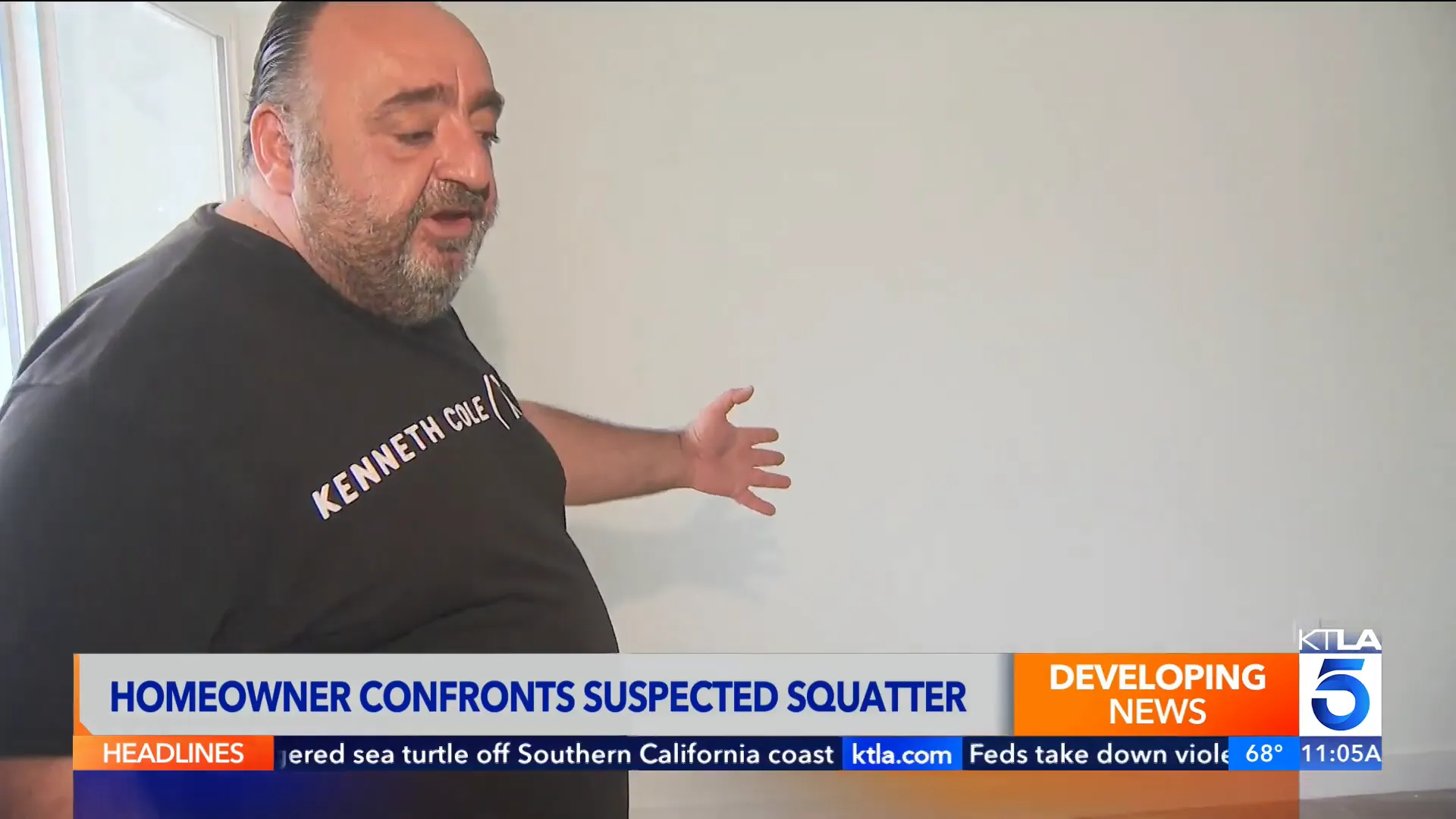
Community Impact and Concerns
The implications of this incident extend beyond the immediate confrontation between Metro and Randall. The community of Valley Glen is grappling with rising concerns about safety and the growing number of squatters in the area. Homeowners are left feeling vulnerable, questioning the effectiveness of law enforcement in addressing these issues.
Metro’s experience has sparked conversations among neighbors about the need for stronger measures to protect their homes and families. Residents are banding together, advocating for increased police presence and community watch programs to deter potential squatters.
The emotional toll on the community is palpable. The fear of encountering a squatter is a weight that many now carry, altering their sense of security in their own homes. The fight against squatting is not just a legal issue; it’s a deeply personal battle for every homeowner affected.
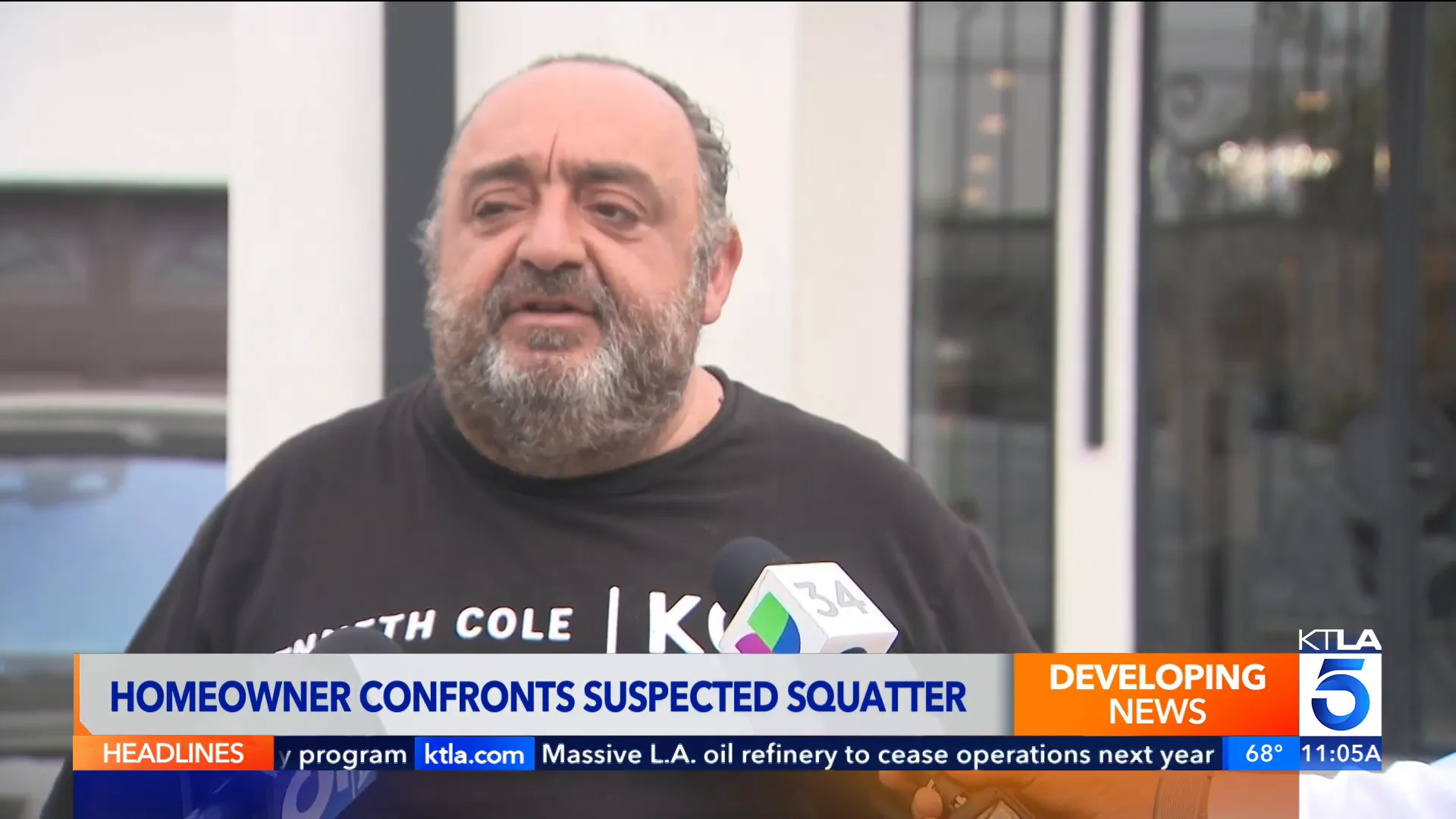
Legal Ramifications of Squatting
Squatting is a complex legal issue that varies significantly by jurisdiction. Homeowners often find themselves in a maze of laws that can seem to favor squatters, complicating the process of reclaiming their homes. Understanding these legal ramifications is crucial for homeowners facing such situations.
In many areas, squatters can claim “adverse possession,” which allows them to gain legal title to a property if they occupy it for a certain period without the owner’s consent. This period can range from a few years to several decades, depending on local laws. Such statutes can leave homeowners feeling powerless against those who illegally occupy their properties.
Additionally, the eviction process can be lengthy and costly. Homeowners may need to go through the courts to regain possession of their homes, and this can take weeks or even months. During this time, squatters may continue to live in the property, further complicating matters for the rightful owner.
Understanding Tenant Rights
In some cases, squatters may attempt to assert tenant rights, arguing that they have established a residence in the property. This can lead to disputes over what constitutes legal occupancy versus squatting. Homeowners must be prepared to provide evidence of their ownership and the squatters’ lack of permission to reside in the home.
It is essential for homeowners to familiarize themselves with local laws regarding squatting and eviction. Consulting with a legal expert can provide clarity on the specific rights and remedies available to them in their situation.
Personal Accounts from Other Homeowners
Many homeowners have faced similar situations, and their accounts reveal the emotional and practical challenges of dealing with squatters. These stories underscore the urgency of addressing this growing problem.
Case Study: The Johnson Family
The Johnsons, a family in a nearby community, experienced a harrowing encounter when they discovered a squatter living in their vacant property. They had been renovating the home to sell but were shocked to find that someone had moved in without their knowledge.
After a series of confrontations, the Johnsons decided to take legal action. The emotional toll was significant, as they worried about the safety of their home and the impact on their family. Their story is a testament to the need for vigilance and preparedness in protecting one’s property.
Community Response
In the wake of their experience, the Johnsons became advocates for homeowner rights, sharing their story with local media and community groups. They urged others to take proactive measures, such as installing security systems and maintaining regular checks on vacant properties.
Their efforts have fostered a sense of solidarity among neighbors, who now share information about suspicious activities and work together to keep their community safe. This collective approach has proven effective in deterring potential squatters.
Preventative Measures for Homeowners
Taking preventative measures can significantly reduce the risk of squatting. Homeowners must be proactive in securing their properties, especially if they are vacant.
Physical Security Enhancements
- Install Security Systems: A robust security system with cameras can deter squatters and provide evidence in case of an incident.
- Regular Property Checks: Frequent visits to vacant properties can help identify any unauthorized occupants early.
- Secure Entry Points: Ensure all doors and windows are locked. Consider reinforcing doors and installing deadbolts.
Community Engagement
- Neighborhood Watch Programs: Collaborating with neighbors to monitor suspicious activity can enhance community safety.
- Inform Local Law Enforcement: Building a relationship with local police can ensure quicker responses to suspicious activities.
- Educate Yourself and Others: Hosting community meetings to discuss squatting and legal rights can empower homeowners.
Conclusion: The Need for Vigilance
The rising issue of squatting poses a serious threat to homeowners, necessitating increased vigilance and proactive measures. The stories of individuals like Mike Metro and the Johnson family highlight the emotional and legal complexities involved in confronting squatters.
Homeowners must not only protect their properties but also foster community awareness and engagement. By sharing experiences and information, neighborhoods can create a united front against squatting, ultimately restoring a sense of security and peace.
Frequently Asked Questions
What should I do if I find a squatter in my home?
First, ensure your safety and avoid confrontation. Contact local law enforcement to report the situation and seek legal advice to understand your rights and obligations.
Can squatters be arrested?
Yes, squatters can be arrested for trespassing. However, the legal process can be complicated, and homeowners should be prepared for potential legal battles.
How can I prevent squatters from occupying my property?
Implement security measures, maintain regular checks on the property, and engage with your community to create awareness and vigilance.

